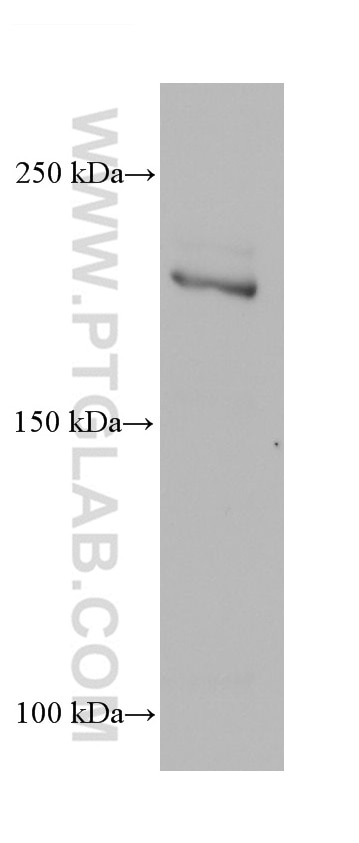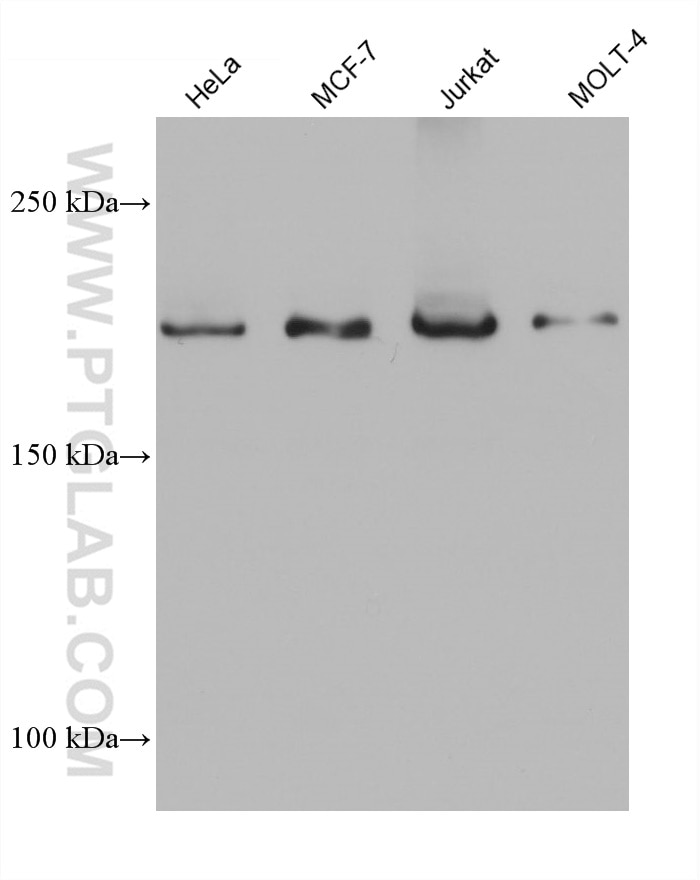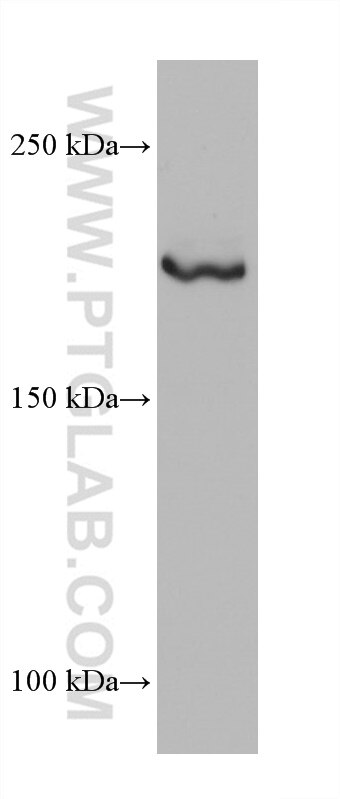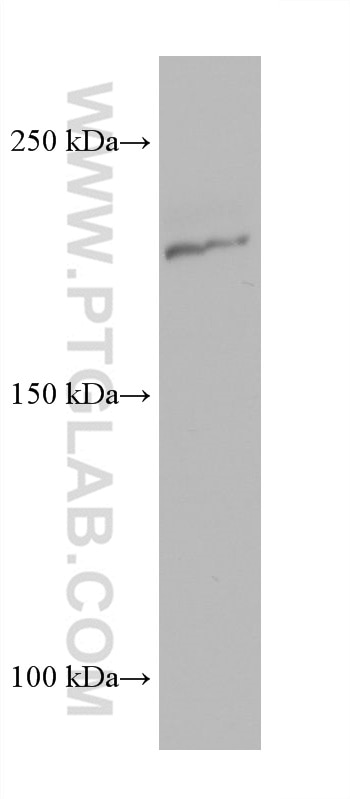Tested Applications
| Positive WB detected in | HeLa cells, SW480 cells, HEK-293 cells, RAW 264.7 cells, MCF-7 cells, Jurkat cells, MOLT-4 cells |
Recommended dilution
| Application | Dilution |
|---|---|
| Western Blot (WB) | WB : 1:5000-1:50000 |
| It is recommended that this reagent should be titrated in each testing system to obtain optimal results. | |
| Sample-dependent, Check data in validation data gallery. | |
Product Information
68611-1-Ig targets BCOR in WB, ELISA applications and shows reactivity with Human, mouse samples.
| Tested Reactivity | Human, mouse |
| Host / Isotype | Mouse / IgG1 |
| Class | Monoclonal |
| Type | Antibody |
| Immunogen |
CatNo: Ag33785 Product name: Recombinant human BCOR protein Source: e coli.-derived, PET28a Tag: 6*His Domain: 2-361 aa of BC009675 Sequence: RFRKRPEPSSDYDLSPAKQEPKPFDRLQQLLPASQSTQLPCSSSPQETTQSRPMPPEARRLIVNKNAGETLLQRAARLGYEEVVLYCLENKICDVNHRDNAGYCALHEACARGWLNIVRHLLEYGADVNCSAQDGTRPLHDAVENDHLEIVRLLLSYGADPTLATYSGRTIMKMTHSELMEKFLTDYLNDLQGRNDDDASGTWDFYGSSVCEPDDESGYDVLANPPGPEDQDDDDDAYSDVFEFEFSETPLLPCYNIQVSVAQGPRNWLLLSDVLKKLKMSSRIFRCNFPNVEIVTIAEAEFYRQVSASLLFSCSKDLEAFNPESKELLDLVEFTNEIQTLLGSSVEWLHPSDLASDNYW Predict reactive species |
| Full Name | BCL6 co-repressor |
| Calculated Molecular Weight | 1703 aa, 186 kDa |
| Observed Molecular Weight | 186-200 kDa |
| GenBank Accession Number | BC009675 |
| Gene Symbol | BCOR |
| Gene ID (NCBI) | 54880 |
| RRID | AB_3085306 |
| Conjugate | Unconjugated |
| Form | Liquid |
| Purification Method | Protein G purification |
| UNIPROT ID | Q6W2J9 |
| Storage Buffer | PBS with 0.02% sodium azide and 50% glycerol, pH 7.3. |
| Storage Conditions | Store at -20°C. Stable for one year after shipment. Aliquoting is unnecessary for -20oC storage. 20ul sizes contain 0.1% BSA. |
Background Information
BCOR, a corepressor of BCL6, binds to transcriptional factors and specifically inhibits gene expression. BCOR plays a key role in the early embryonic development, mesenchymal stem cell function and hematopiesis. BCOR can associate with HDACs, the polycomb group protein, polycomb group Ring finger protein1/nervous system polycomb1 (PCGF1/NSPC1), histone demethylase, F-box- and leucine-rich repeat protein10(FBXL10). Via repression of TFAP2A acts as a negative regulator of osteo-dentiogenic capacity in adult stem.
Protocols
| Product Specific Protocols | |
|---|---|
| WB protocol for BCOR antibody 68611-1-Ig | Download protocol |
| Standard Protocols | |
|---|---|
| Click here to view our Standard Protocols |










